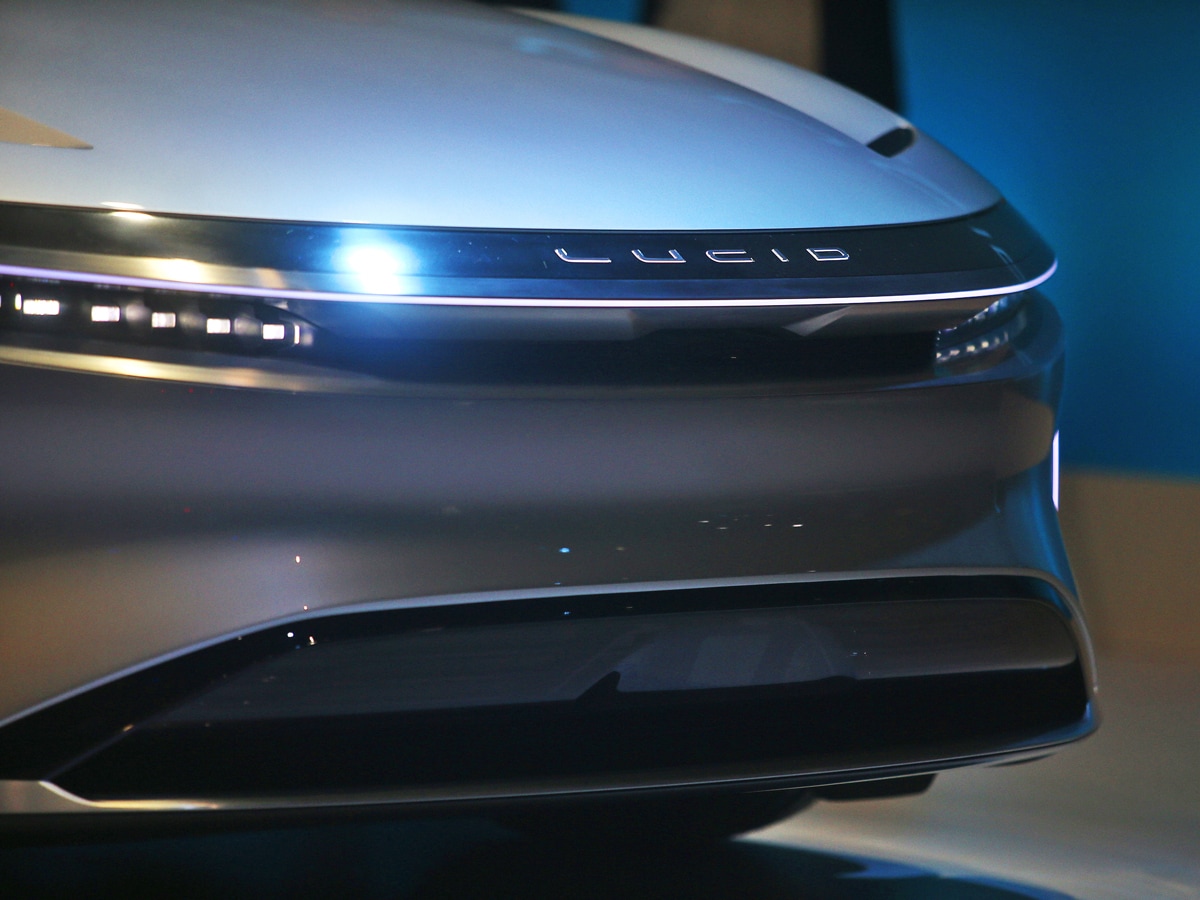Churchill Capital IV’s [CCIV] share price has vaulted more than 500% since news broke that the shell company was in talks to merge with luxury electric vehicle (EV) maker Lucid Motors, via the increasingly popular special purpose acquisition company (SPAC) route.
Churchill Capital’s share price had been largely static at circa $10.00 since it began trading in September last year, until it climbed 31.34% to $13.20 on 11 January after Bloomberg broke the story. The Churchill Capital share price has moved swiftly through the gears since, reaching an intraday high of $64.86 on 18 February, a staggering 545.37% jump in a little over a month.
Then, on 23 February, Churchill Capital’s share price plunged to close 38.6% down as Lucid Motors confirmed the SPAC deal.
The highly-anticipated move to take Lucid Motors public is set to raise circa $4.4bn, which would see the luxury EV manufacturer valued at as much as $24bn. After selling shares at $10 each and raising $2bn in an initial public offering (IPO) on the New York Stock Exchange last July, Churchill Capital has now embarked on a private investment in public equity (PIPE) transaction to sell shares and raise another $1bn, as reported by Reuters.
Highlighting the investor-frenzy around the stock, Bloomberg’s Chris Bryant reported last Friday that “almost 240m shares have changed hands in the last three trading sessions [which is] remarkable considering only 207m shares are tradable.”
Who’s behind Lucid Motors and Churchill Capital?
The firm now known as Lucid Motors was founded in 2007 as Atieva by former Tesla [TSLA] executive Bernard Tse and entrepreneur Sam Weng as an electric vehicle battery maker. It rebranded as Lucid Motors in 2016, choosing instead to concentrate on the production of EVs themselves. It received financial backing from China and Silicon Valley investors, with additional funding from Chinese automaker BAIC Motor [1958] and technology company LeEco, according to Reuters.
The company also received a $1bn investment in 2018 from Saudi Arabia’s Public Investment Fund (PIF), to help fund construction of a US assembly plant in Arizona. The PIF is now the majority owner, with a stake of circa 60%.
$1million
Lucid Motors' investment from Saudi Arabia’s Public Investment Fund
In another connection with Elon Musk’s company, Lucid’s CEO is Tesla’s former chief engineer, Peter Rawlinson.
Churchill Capital was set up by the former Citigroup [C] vice-chairman, Michael Klein, in 2019. It is the largest of seven SPACs Klein has now set up.
“He is incredibly well connected having worked on some of the largest mergers in history,” said FXStreet’s Ivan Brian, who cites his work with Lucid Motors chairman Andrew Liveris, the former CEO of Dow Chemical, on the $130bn DuPont-Dow merger. Klein has also been an adviser to the Saudi PIF on its global investment strategy, and now finds himself negotiating with them to take Lucid Motors public.
Can Lucid Motors’ share price gains mirror Tesla’s meteoric rise?
While we can only speculate as to where the soon-to-be publicly-traded Lucid Motors’ share price will go, it’s clear that “investors keen on SPACs are on the hunt for electric vehicle startups, hoping to catch the next Tesla”, according to Reuters’ Joshua Franklin and Anirban San. They say the merger between Lucid Motors and Churchill Capital “would be the biggest in a string of deals by EV makers”.
Given the rush of activity the SPAC deal has generated so far, Lucid Motors certainly seems to have the potential to rise — though whether it can match Tesla’s incredible share price gain of 1,014% from its 52-week low is another thing (as of 19 February’s close).
1,014%
Tesla's share price gain from its 52-week low
There’s no doubting the experience and expertise behind Lucid Motors, as it gets set to deliver its first Lucid Air sedan in the US this spring, but the EV company still has a long road to travel. With the firm yet to deliver any vehicles, or disclose financials, Bryant reckons “$12bn already seems a lot for a pre-revenue company, albeit one whose first model – the Lucid Air – is pretty desirable and whose CEO Peter Rawlinson led the engineering for Tesla’s Model S”.
Investors and analysts are sure to be watching developments closely over the coming days and months.
Disclaimer Past performance is not a reliable indicator of future results.
CMC Markets is an execution-only service provider. The material (whether or not it states any opinions) is for general information purposes only, and does not take into account your personal circumstances or objectives. Nothing in this material is (or should be considered to be) financial, investment or other advice on which reliance should be placed. No opinion given in the material constitutes a recommendation by CMC Markets or the author that any particular investment, security, transaction or investment strategy is suitable for any specific person.
The material has not been prepared in accordance with legal requirements designed to promote the independence of investment research. Although we are not specifically prevented from dealing before providing this material, we do not seek to take advantage of the material prior to its dissemination.
CMC Markets does not endorse or offer opinion on the trading strategies used by the author. Their trading strategies do not guarantee any return and CMC Markets shall not be held responsible for any loss that you may incur, either directly or indirectly, arising from any investment based on any information contained herein.
*Tax treatment depends on individual circumstances and can change or may differ in a jurisdiction other than the UK.
Continue reading for FREE
- Includes free newsletter updates, unsubscribe anytime. Privacy policy





